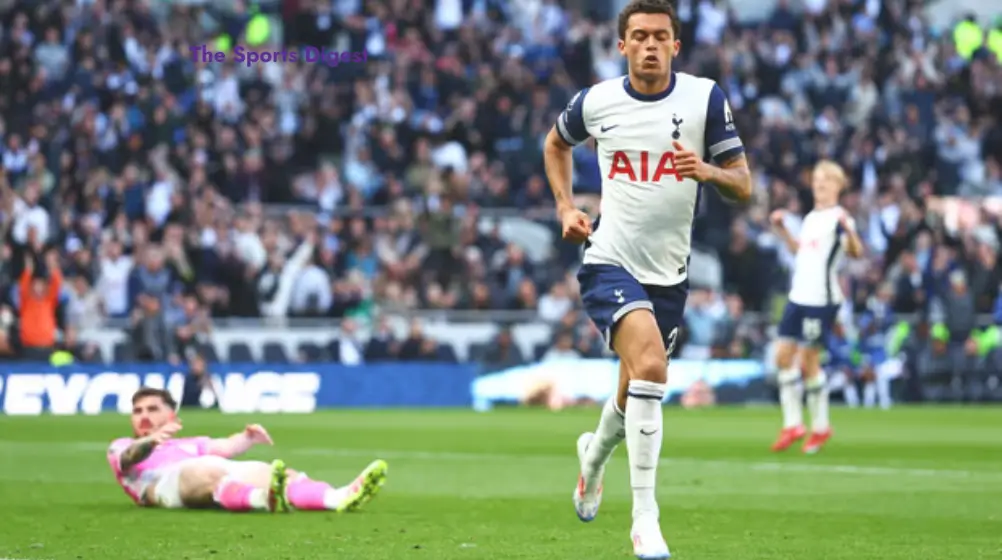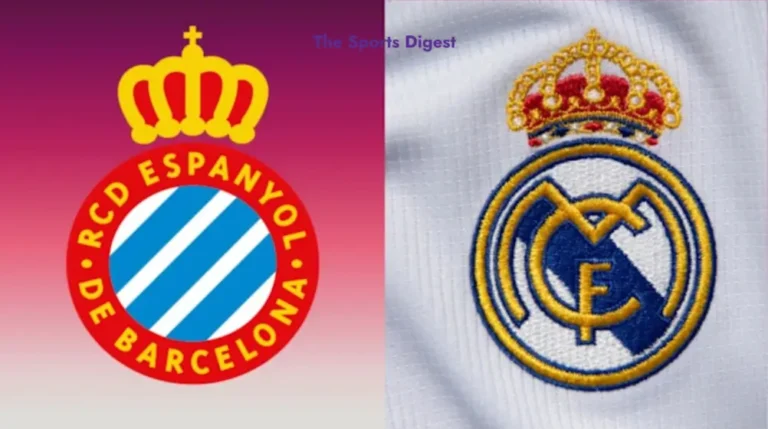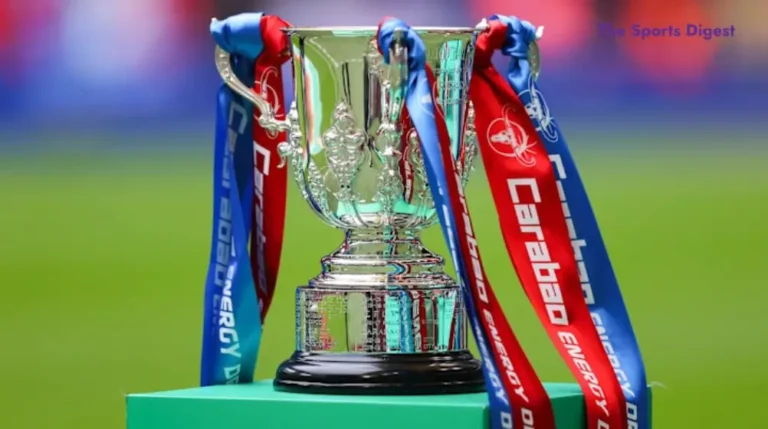Southampton’s Early Relegation Exit
In a season that has redefined the parameters of Premier League failure, Southampton’s relegation was mathematically confirmed on Saturday following a meek 3-0 defeat at Tottenham Hotspur Stadium. The Saints’ demotion to the Championship carries the unwanted distinction of being the earliest relegation in Premier League history, sealed with a record seven games still remaining in the campaign.
The manner of their exit – a listless performance against a Tottenham side seemingly going through the motions – perfectly encapsulated a season characterized by defensive frailty, attacking impotence, and strategic incoherence. As the final whistle blew in North London, not even the most optimistic Southampton supporter could argue against the justice of their fate.
Table of Contents
A Defeat That Summarized a Season
Saturday’s defeat bore all the hallmarks of Southampton’s disastrous campaign. Tottenham, despite their own inconsistent form and growing fan discontent, carved open the visitors’ defense with embarrassing ease. The opening goal exemplified Southampton’s defensive disorganization, with Djed Spence afforded acres of space to deliver a pinpoint cross for Brennan Johnson to tap home unmarked at the far post.
The second and third goals followed with similar inevitability, each exposing fundamental flaws in Southampton’s structure and resolve. Perhaps most telling was the subdued atmosphere that permeated the stadium throughout the contest. Despite securing a comfortable victory, Tottenham supporters remained largely silent, their enthusiasm dampened by recent disappointments and ongoing frustration with the club’s leadership.
For the traveling Southampton fans, the experience was grimly familiar – watching their team comprehensively outplayed by opponents who barely needed to shift out of first gear to secure three points. This wasn’t just a defeat; it was a surrender that reflected a season-long capitulation.
The Anatomy of a Historic Failure
To understand the magnitude of Southampton’s failure, context is crucial. This is a team on course to challenge Derby County’s infamous 2007-08 campaign, widely regarded as the Premier League’s nadir with just 11 points from 38 games. With only 18 points from 31 matches and a goal difference of -34, Southampton’s statistical case for being among the worst Premier League teams in history is compelling.
The path to this ignominious position began long before Saturday’s confirmation. Russell Martin, appointed with hopes of implementing an attractive possession-based style, was dismissed following a humiliating 5-0 defeat to Tottenham earlier in the season – a result that now seems portentous rather than anomalous.
His replacement, Ivan Juric, arrived with a reputation for tactical pragmatism and defensive organization, qualities that appeared ideally suited to steadying a sinking ship. Initial optimism surrounded his appointment, with Juric himself declaring confidence in Southampton’s survival prospects despite inheriting a team with just four points from their opening 10 matches.
That optimism has long since evaporated. In the aftermath of Saturday’s relegation-confirming defeat, Juric’s admission that he had been “completely wrong” about the team’s potential for survival represented a stark acknowledgment of reality. His reference to narrow defeats and critical injuries as mitigating factors rang hollow against the backdrop of a team that has managed just one league victory in the past five months.
The Juric Era: Too Little, Too Late
Juric’s tenure, which began with cautious hope, will now be recorded as a failed rescue mission. Taking over a squad already adrift at the bottom of the table presented significant challenges, but the lack of meaningful improvement under his guidance raises questions about both his tactical approach and the quality of the playing staff at his disposal.
The Croatian manager has consistently pointed to fine margins in several narrow defeats, suggesting that fortune has played a role in Southampton’s demise. While there is some validity to this perspective – Southampton have lost several matches by a single goal – it overlooks the fundamental deficiencies that have plagued the team throughout the campaign.
Defensively, Southampton have been catastrophically porous, conceding 70 goals in their 31 matches. More damning still has been their offensive impotence, scoring just 36 times – many of those coming in matches already beyond salvation. The combination of defensive vulnerability and attacking inefficiency has created a perfect storm of incompetence.
Unlike some relegated teams who can point to a series of close defeats or unfortunate decisions, Southampton’s season has been characterized by comprehensive failures across all departments. The statistics tell a damning story: the lowest points total at this stage of a Premier League season, the earliest confirmed relegation, and potential records for fewest wins and most defeats looming on the horizon.
Despite this catastrophic performance, there remains hope that Juric’s reputation may not suffer the same fate as Paul Jewell, whose career never fully recovered from Derby’s historically poor 2007-08 campaign. The context of Juric’s appointment – taking over a team already in dire straits – provides some mitigation for his failure. Nevertheless, his inability to implement even modest improvements will inevitably raise questions about his suitability for future Premier League roles.
Tottenham’s Hollow Victory
While Southampton’s relegation dominated the narrative, Saturday’s match also shed light on Tottenham’s own challenges. Despite securing a comfortable 3-0 victory, the atmosphere at Tottenham Hotspur Stadium reflected growing discontent among the home supporters.
Chants of “We Want Levy Out” reverberated around the ground before, during, and after the match – a clear indication of fan frustration with chairman Daniel Levy’s stewardship. The protests, which have become increasingly vocal in recent weeks, create an additional pressure point for manager Ange Postecoglou, who finds himself navigating both on-field inconsistency and off-field politics.
Postecoglou’s recent confrontation with his own supporters following criticism of the team’s performance has added another layer of complexity to Tottenham’s situation. The incident evoked memories from the Australian’s time at South Melbourne Hellas, where legendary Hungarian Ferenc Puskas once berated fans during a match – though Postecoglou’s approach appears to have been considerably more measured.
The pressure on Postecoglou has intensified following Tottenham’s elimination from the FA Cup and their inconsistent league form. Thursday’s upcoming Europa League quarter-final second leg against Athletic Bilbao now looms as a potentially pivotal moment in his tenure. Victory would secure a European semi-final and provide valuable breathing space; defeat would amplify questions about the direction of his project.
Looking Ahead: Rebuilding from the Ruins
For Southampton, attention now turns to planning for life in the Championship. The unprecedented earliness of their relegation at least provides additional time for strategic planning and squad reshaping. Decisions about Juric’s future will need to be made, along with assessments of which players should form part of the rebuilding process.
The club’s ownership, Sport Republic, faces significant scrutiny following a season of catastrophic decision-making. The appointment and subsequent dismissal of Russell Martin represented a substantial strategic misstep, while the recruitment policy has failed to deliver players capable of competing at Premier League level.
Questions must also be asked about the club’s broader football operations. The transition from Ralph Hasenhüttl’s counter-pressing style to Martin’s possession-based approach represented a jarring philosophical shift that the playing squad struggled to adapt to. The subsequent appointment of Juric, with his contrasting tactical ideas, further compounded the sense of strategic incoherence.
For a club once renowned for its smart recruitment and clear identity under the leadership of figures like Nicola Cortese and Les Reed, the current disarray represents a dramatic fall from grace. Rebuilding that identity and implementing a coherent sporting strategy will be essential for any hopes of a swift return to the top flight.
A Cautionary Tale
Southampton’s historically poor campaign serves as a cautionary tale for other Premier League clubs. The importance of coherent sporting strategy, appropriate managerial appointments, and squad construction aligned with tactical philosophy has been starkly illustrated by their failure.
As they prepare for life in the Championship – a notoriously competitive division that has trapped many former Premier League clubs in its grasp – Southampton must learn from the systemic failures that led to this nadir. The earliest relegation in Premier League history should serve as both a humbling reality check and a catalyst for fundamental change.
For the players who will see out the remaining seven games of this dismal campaign, professional pride now becomes the primary motivation. Avoiding the ignominy of breaking Derby’s record for the worst Premier League season represents a modest but meaningful target in a year otherwise defined by failure.
As Southampton’s Premier League chapter closes with a whimper rather than a roar, the task of writing the next chapter begins. Whether it represents the beginning of a renaissance or the continuation of decline will depend on how thoroughly the lessons of this historic failure are absorbed and addressed.
Have you ever read an article like this?
There are no reviews yet. Be the first one to write one.






